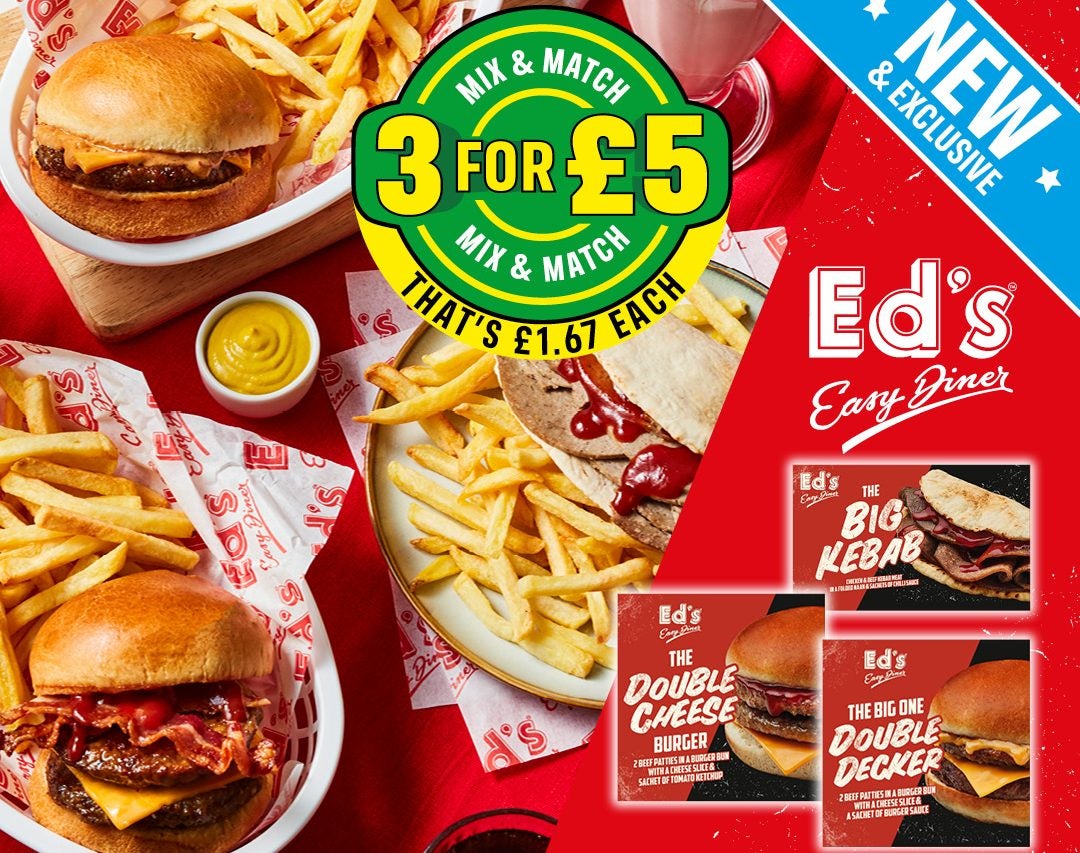‘Cocooning’ emerged as a trend during the pandemic as restrictions on mobility meant more food was eaten at home, which became a more sophisticated hub for an expanding share of consumption occasions. Covid-19 may have receded but pressure on spending continues to leave consumers in search of “insperiences” that offer an affordable alternative to going out.
Food manufacturers and retailers are trying to capitalise on this behaviour by offering products that go some way to emulating the experience of dining at foodservice outlets.
In the UK, discount supermarket Iceland has launched 24 lines geared towards the “fakeaway” concept of recreating takeaway and restaurant-style food at home, including TGI Friday-branded sauces and Ed’s Easy Diner and Piccolino restaurant ready meals.
Premier Foods has added to its Loyd Grossman range with the launch of stir-in sauces it says help consumers make “restaurant quality pasta”.
Cost inflation in the supply chain means it’d be hard to find a food brand that has managed to keep much of a lid on price increases. However, while some are trying to mitigate that impact as much as possible to offer value to consumers, others are seeing the potential of ‘hi-lo’ consumption.
Such consumption is a behaviour pattern in which consumers cut out high-cost expenditures in response to budget constraints and compensate with smaller, frivolous purchases as a reward.

US Tariffs are shifting - will you react or anticipate?
Don’t let policy changes catch you off guard. Stay proactive with real-time data and expert analysis.
By GlobalData
GlobalData’s consumer surveys show that, from the fourth quarter of last year to the opening three months of 2023, the number of respondents cutting back on eating out and ordering takeaway has gradually increased, with figures marginally higher in the UK compared to the global average.
However, consumers have begun to tire of these cutbacks. As a result, hi-lo consumption trends have kicked in for some seeking a small indulgence or treat in replacement of larger expenses.
Brands that can offer at-home retail products of a similar level of quality to out-of-home products/services without the level of preparation required for scratch cooking should be able to prosper.
However, the market for products geared towards such ‘cocooning’ is still a competitive environment in terms of value for money. For instance, in the first quarter of 2023 when buying prepared meals/ready meals, 48% of consumers globally reported switching to a cheaper brand or store, 29% were brand loyal but making cutbacks, and 24% said they had stopped buying these products altogether.
It is therefore important for brands looking to tap into the cocooning trend to clearly communicate better value in their marketing and target specific occasions such as weekends when consumers are more likely to be more willing to indulge.
The Ed’s Easy Diner range at Iceland has been priced from £2.00 to £2.50 ($2.55–3.19), which easily competes on price with typical quick service restaurant pricing in the UK.
Meanwhile, in Brazil, Easy Drinks directly confronts on-trade competition with claims on-pack that its DIY cocktail kits are half the price of a restaurant cocktail. In the wake of the pandemic, DIY cocktail kits are nothing new but brands such as Easy Drinks are working to improve the quality and affordability of their products now the on-premise is reopened.
Ultimately, brands can continue to tap into the cocooning trend in 2023 but they must be mindful of altered priorities since the pandemic.






